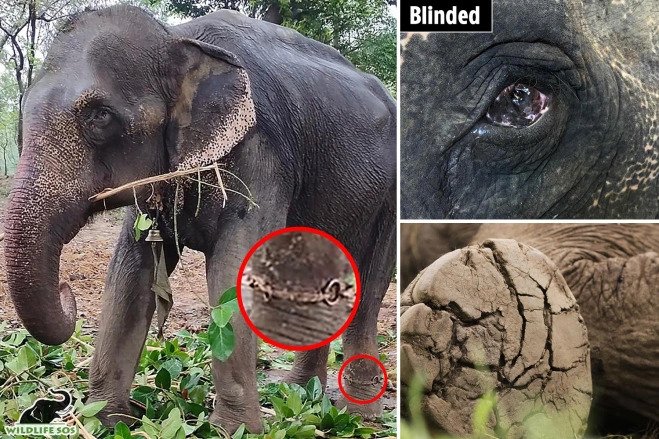An elderly animal named Nina, who is now 60, was rescued by a charity named Wildlife SOS in Uttar Pradesh, India, after they found out the horrifying things the animal has gone through.
Nina was reportedly blinded by her own cruel owners and was subjected to animal cruelty, which left her with severe PTSD.
The abused elephant showed signs of PTSD, which includes anxiety and bobbing her head.
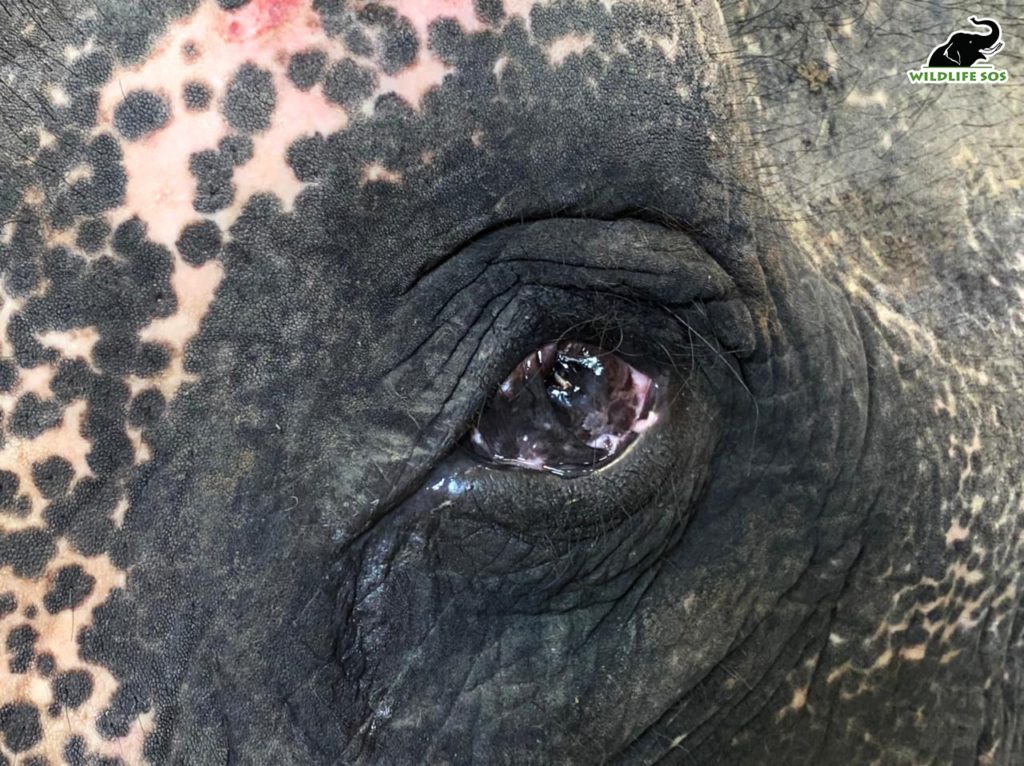
Elephants that are captured in India are subjected to a brutal process called “phajaan”, which means to break spirit.
In that process, the animal is placed in a confined space, where they are starved and are brutally beaten until they become subservient to their captors.
Not only that, but t he captors also intentionally destroy the eyes of the elephants, which will help them gain more sympathy while begging.
Nina was also used in wedding ceremonies, where she would be painted, would be forced to carry heavy things and was forced to walk on hot tarmac roads from one ceremony to another while being surrounded by loud music.
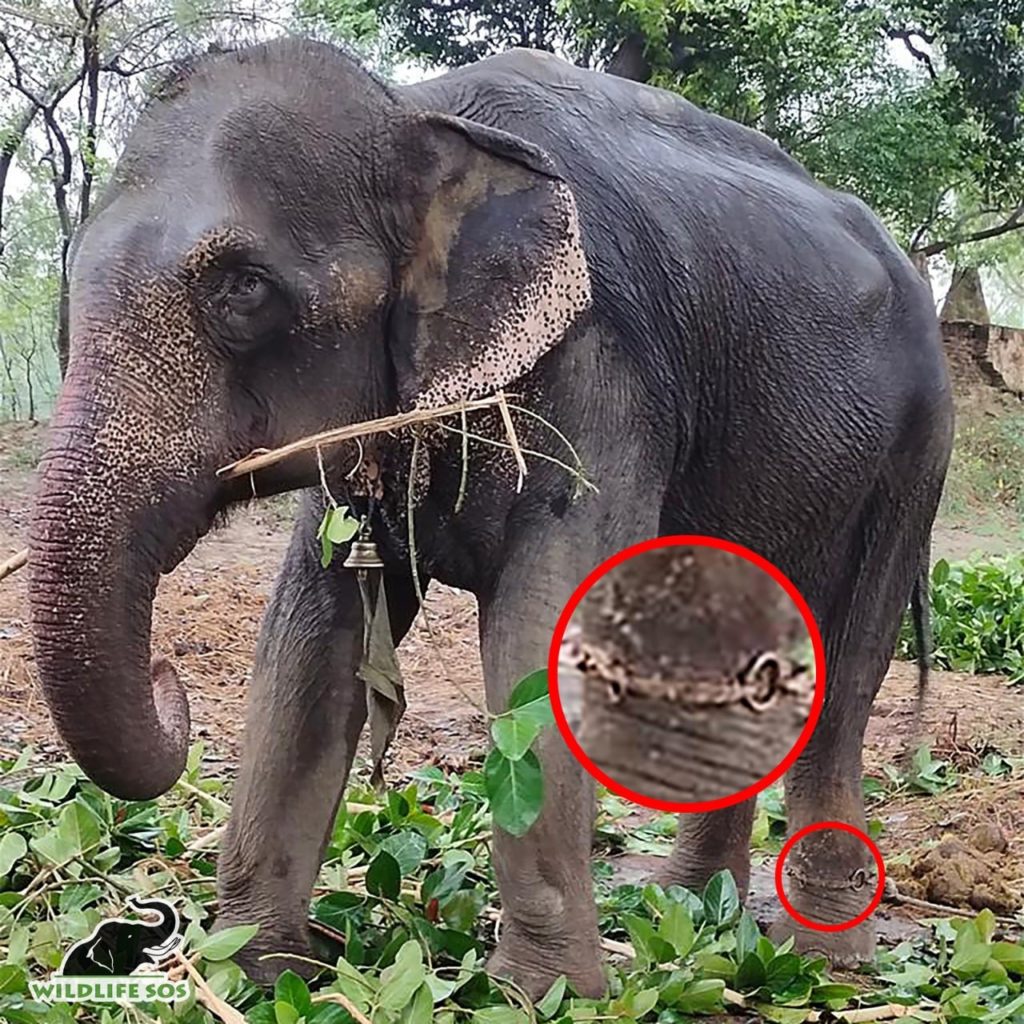
The horrifying work conditions and lack of proper nutrition ended up Nina to develop various physical ailments.
She currently has arthritis and damaged limbs as well as scars and wounds on her body.
Dr Ilayaraja, Deputy Director of Veterinary Services at Wildlife SOS, told The Sun Online:
Nina suffers from a degenerative joint condition that affects her hind limbs. Her forelimbs are affected due to compensatory weight-bearing. Both eyes are damaged completely, possibly due to external trauma and lack of medical attention. She has been placed under a carefully calibrated diet to regain strength.
Eye specialists from India and the United Kingdom said that the loss of Nina was almost certainly intentionally inflicted.
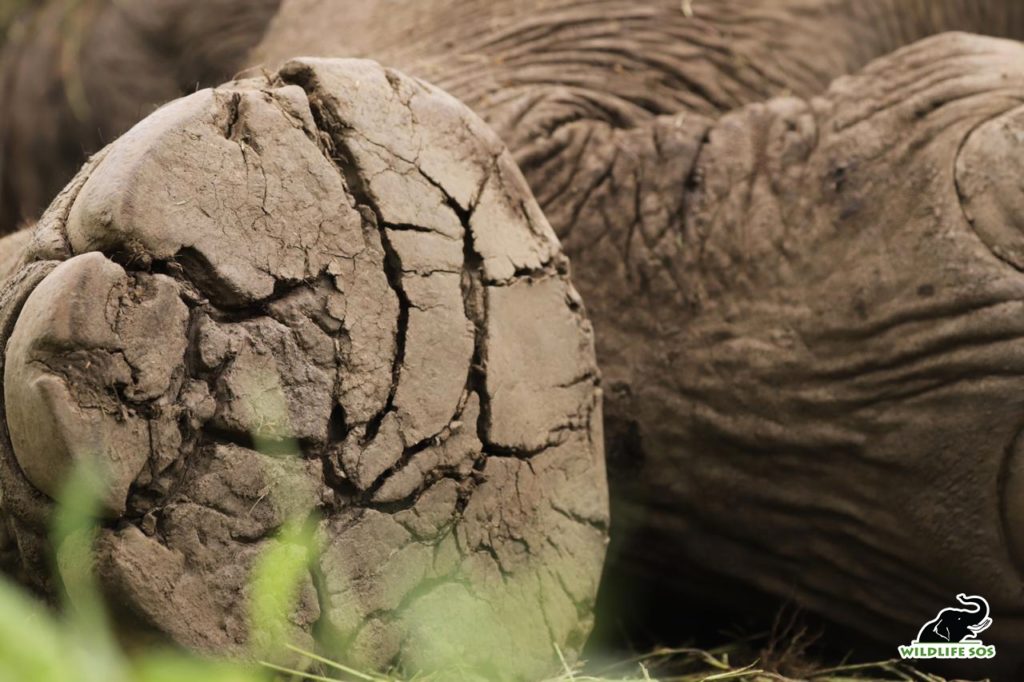
The left eyeball of Nina has completely collapsed due to an untreated injury and her right eye had shrunken.
Nina was rescued and brought to the charity’s Elephant Hospital Campus in Mathura, India first-ever medical facility for elderly and injured elephants.
Nina will now spend her remaining years while being cared for by the team a t Wildlife SOS, where she is housed in an enclosure, which is never changed so she can use her sense of smell and touch to navigate her way around.
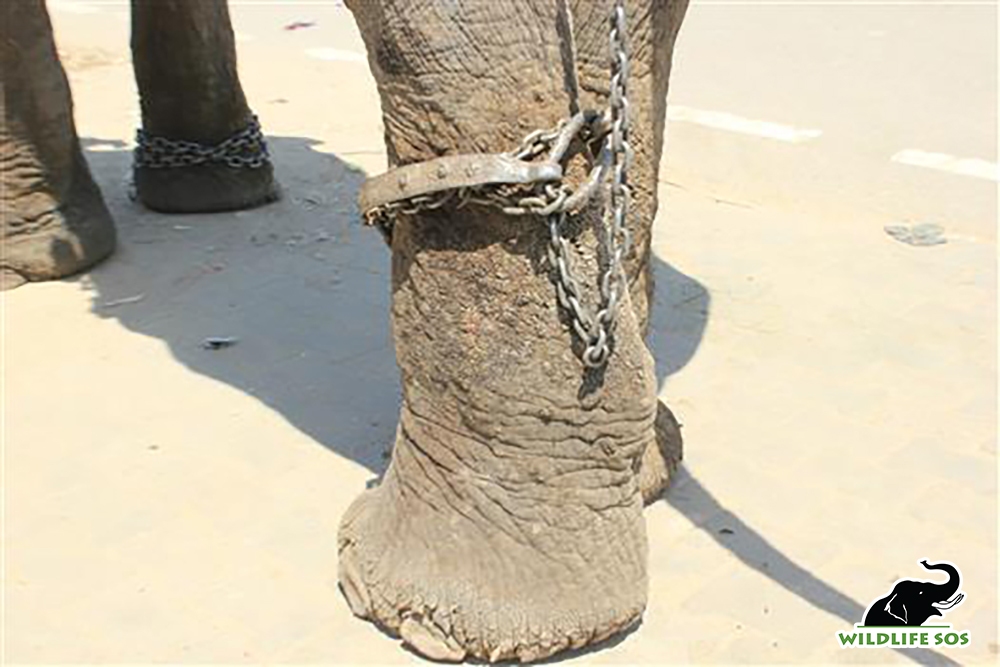
Ms Tamarisk Grummit, who represents Wildlife SOS in the UK says:
Nina has found a happy and loving home at Wildlife SOS. Watching her evolve into a gregarious elephant is proof that we must continue treading the path to help Elephants in distress across India.
Kartick Satyanarayan, the co-founder and CEO of Wildlife SOS, said:
India is the last stronghold for the Asian elephant population where 50 per cent of the remaining populations occur and it is critically important to conserve and protect this majestic species. At Wildlife SOS, we try our best to give the elephants a life of freedom and dignity. Caring for blind elephants, in particular, can be challenging as they require specialised care and constant monitoring. We are committed to creating a safer place for wildlife across India and change the perception of people towards wildlife.
Wildlife SOS works on donations and they are currently raising funds for the care and upkeep of 33 elephants.
You can contribute to the good cause by donating at www.wildlifesos.org/donate.
